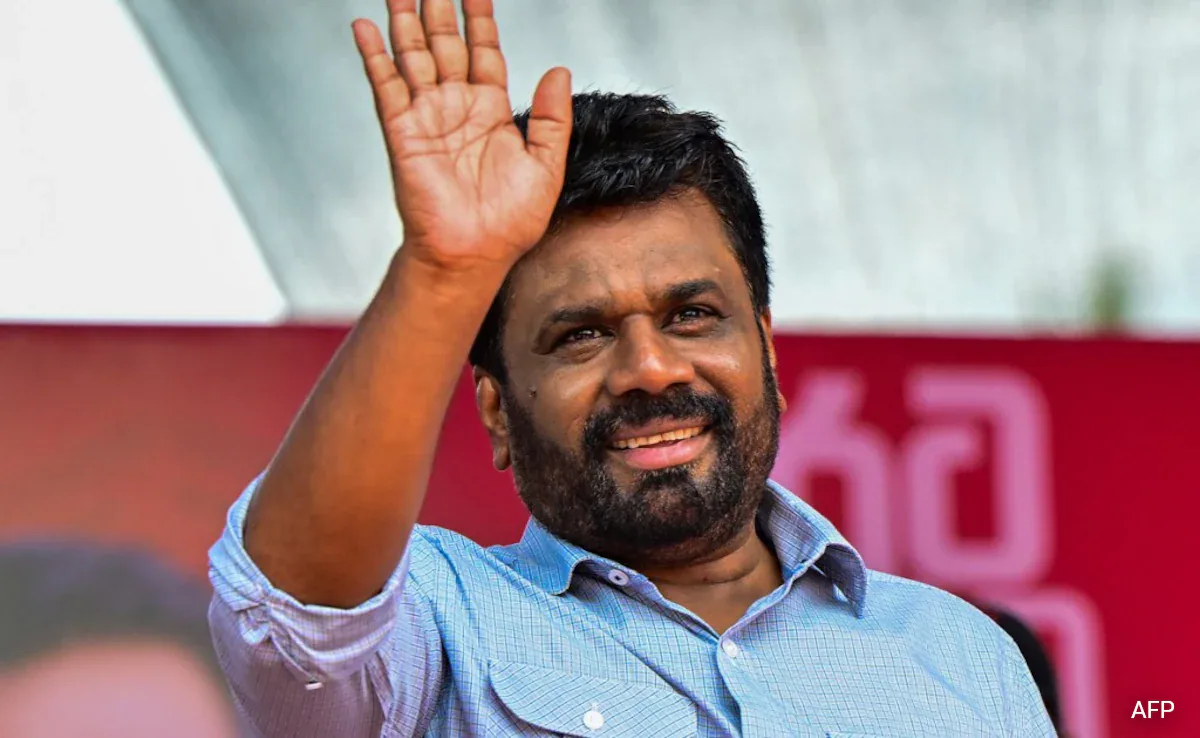COLOMBO: The Election Commission of Sri Lanka has declared Kumara Dissanayaka, the Marxist-leaning leader of the People’s Liberation Front (JVP) and the National People’s Power coalition, the winner of the presidential election. Dissanayake, 55, gained the presidency with 42.31% of the citizens’ votes; this was the first time in Sri Lanka’s history that the re-counting was for the second time.
The current prime minister, Mahinda Rajapaksa, beat the latter, who gained 54.90% of the vote in the Saturday elections. At the same time, the opposition leader, Sajith Premadasa, came second with 32.76% of the vote. The outgoing President Ranil Wickremesinghe, who took over in the middle of the worst economic crisis that began in 2022 and had imposed harrowing austerity measures as part of the IMF agreed package, got 17.27 % of the votes to come third place.
The election commission said that Dissanayake will be sworn in officially as president on Monday at the President’s Secretariat in Colombo. This finding suggests that Sri Lankan voters are frustrated with Wickremesinghe and his link to the Rajapaksa family—people who are mainly held accountable for the country’s woes.
Consequently, in his victory speech, Dissanayake called upon the Sinhalese, Tamil, and Muslim Sri Lankans to unite and be one. As he posted on X (formerly Twitter), ‘This victory belongs to all of us.’ It has remained a dream in our generation for centuries but is finally at our disposal in this generation. ‘It is not now a single person’s effort, let alone mine. This is a collective achievement.’(more)
Al Jazeera’s Minelle Fernandez, who was broadcasting from Colombo, said that Dissanayake was a “refreshing and dynamic” leader for the presidency. She said his leadership style in the campaign was coherent by capturing people’s hope and a new dawn in Sri Lankan politics. Dissanayake, who has served more than 20 years in the parliament, is promising to introduce a new way of politics in the country.
Democracy, economic liberalization, and betterment of social conditions were the critical issues of Dissanayake’s campaign. He outright rejected the measures linked to the IMF credits, thus vowing to renegotiate several of them so that the ordinary person could bear the impact. From the emergence of the economic crisis in 2022 till the final days of the presidential campaign, Wickremesinghe failed to provide a proper solution for meeting the demand of the people in the context of affordable prices that pushed them toward the JVP leader.
Political analysts saw it as a response to two significant shortcomings in Sri Lankan politics. Nishan de Mel, executive director of Verité Research, added that Dissanayake replaced the vacancy created by the fall of the Rajapaksa family dynasty, who had ruled the island for 15 years. In addition, he returned to center-left politics, which shifted rightward after the regime of the Rajapaksas.
corruption itself was not an issue,” says Alan Keenan of the International Crisis Group, and it was this that Dissanayake capitalized on in turn. “The man,” Keenan went on with his Cross more prominently displayed as he waved it for emphasis, “is a reformer, a man on a change mission.” “His supporters still expect a lot.”
Being optimists, as Dissanayake assumed the presidency, Sri Lankans began waiting to see whether his presidency would herald the political and economic changes he vowed to make a reality for the island nation.















